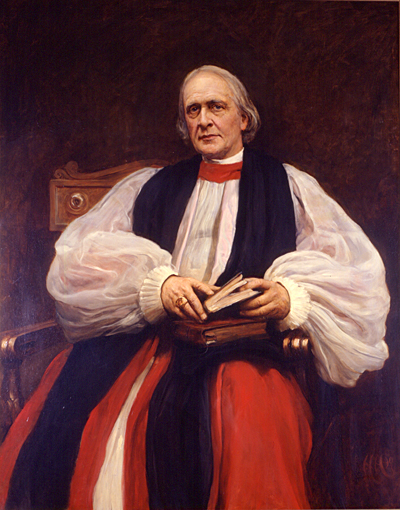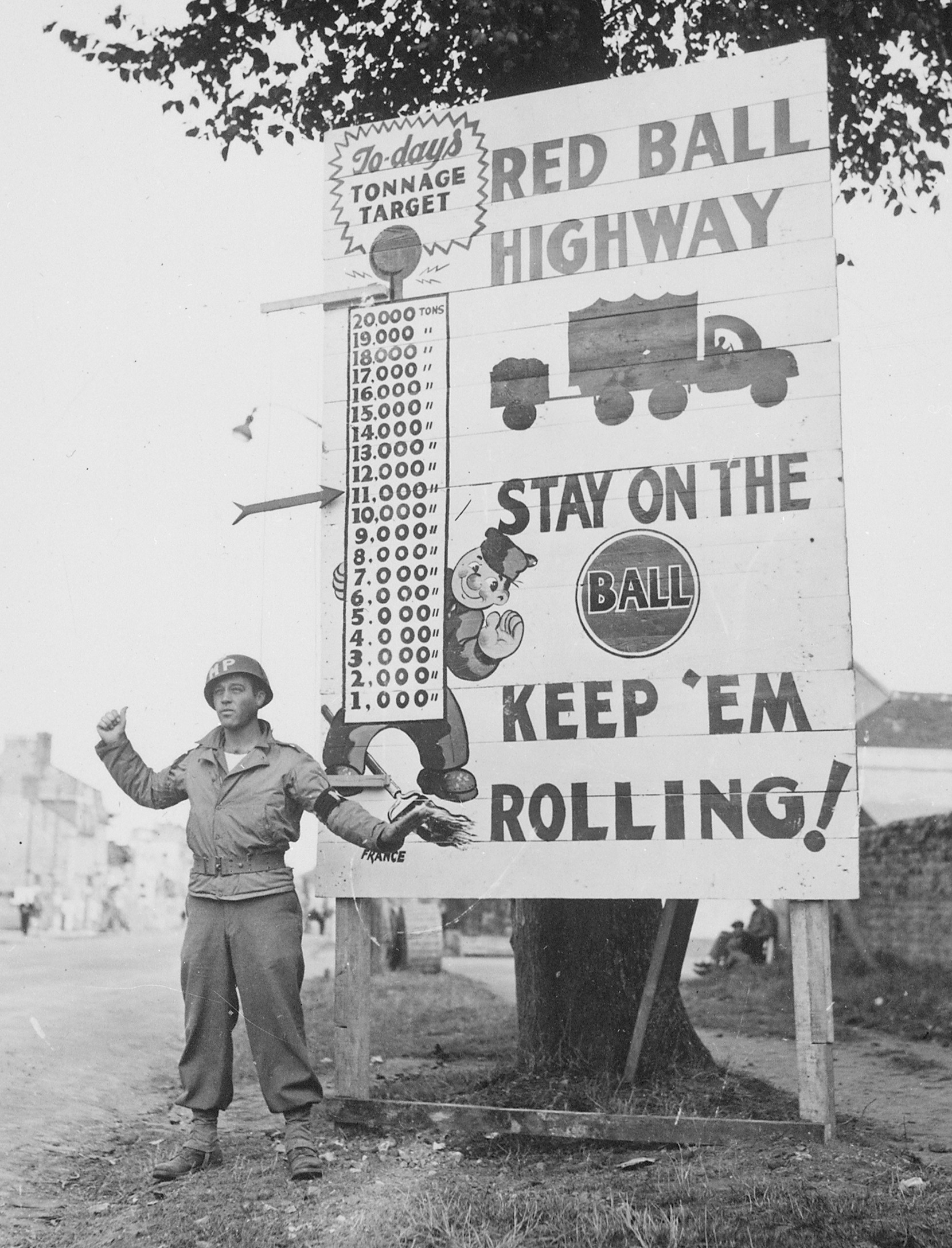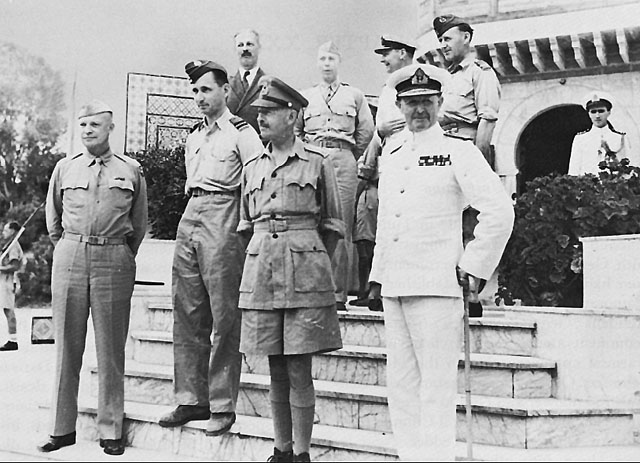|
Gerald William Lathbury
General Sir Gerald William Lathbury, (14 July 1906 – 16 May 1978) was a senior British Army officer who fought during the Second World War, serving with distinction with the British Army's airborne forces, commanding the 1st Parachute Brigade in Sicily, Italy and Holland. He later became Governor of Gibraltar from 1965 to 1969. Early life and military career Gerald Lathbury was born in Murree, British India on 14 July 1906 into a military family, his father being Colonel (Henry) Oscar Lathbury. Returning to England, he was educated at Wellington College, Berkshire and the Royal Military College, Sandhurst. Passing out from Sandhurst, Lathbury was commissioned as a second lieutenant into the Oxfordshire and Buckinghamshire Light Infantry on 4 February 1926. He was seconded to the Royal West African Frontier Force and Gold Coast Regiment between 1928 and 1932 and, returning to England, attended the Staff College, Camberley between 1937 and 1938. Promoted to lieutenant on 4 Febr ... [...More Info...] [...Related Items...] OR: [Wikipedia] [Google] [Baidu] |
Jewish Insurgency In Mandatory Palestine
A successful paramilitary campaign was carried out by Zionist underground groups against British rule in Mandatory Palestine from 1944 to 1948. The tensions between the Zionist underground and the British mandatory authorities rose from 1938 and intensified with the publication of the White Paper of 1939. The Paper outlined new government policies to place further restrictions on Jewish immigration and land purchases, and declared the intention of giving independence to Palestine, with an Arab majority, within ten years. Though World War II brought relative calm, tensions again escalated into an armed struggle towards the end of the war, when it became clear that the Axis powers were close to defeat. The Haganah, the largest of the Jewish underground militias, which was under the control of the officially recognised Jewish leadership of Palestine, remained cooperative with the British. But in 1944 the Irgun launched a rebellion against British rule, thus joining Lehi, which ... [...More Info...] [...Related Items...] OR: [Wikipedia] [Google] [Baidu] |
Royal Military College, Sandhurst
The Royal Military College (RMC), founded in 1801 and established in 1802 at Great Marlow and High Wycombe in Buckinghamshire, England, but moved in October 1812 to Sandhurst, Berkshire, was a British Army military academy for training infantry and cavalry officers of the British and Indian Armies. The RMC was reorganised at the outbreak of the Second World War, but some of its units remained operational at Sandhurst and Aldershot. In 1947, the Royal Military College was merged with the Royal Military Academy, Woolwich, to form the present-day all-purpose Royal Military Academy Sandhurst. History Pre-dating the college, the Royal Military Academy, Woolwich, had been established in 1741 to train artillery and engineer officers, but there was no such provision for training infantry and cavalry officers. The Royal Military College was conceived by Colonel John Le Marchant, whose scheme for establishing schools for the military instruction of officers at High Wycombe and Great M ... [...More Info...] [...Related Items...] OR: [Wikipedia] [Google] [Baidu] |
Wellington College, Berkshire
Wellington College is a public school (English independent day and boarding school) in the village of Crowthorne, Berkshire, England. Wellington is a registered charity and currently educates roughly 1,200 pupils, between the ages of 13 and 18, per annum. The college was built as a national monument to the first Duke of Wellington (1769–1852), in whose honour it is named. Queen Victoria laid the foundation stone in 1856 and inaugurated the School's public opening on 29 January 1859. Many former Wellington pupils fought in the trenches during the First World War, a conflict in which 707 of them lost their lives, many volunteering for military service immediately after leaving school. A further 501 former pupils were killed in action in the Second World War. The school is a member of the Rugby Group of 18 British public schools and is also a member of the G20 Schools group. History Wellington College was granted a royal charter in 1853 as "''The Royal and Religious Foun ... [...More Info...] [...Related Items...] OR: [Wikipedia] [Google] [Baidu] |
Operation Market Garden
Operation Market Garden was an Allies of World War II, Allied military operation during the World War II, Second World War fought in the Netherlands from 17 to 27 September 1944. Its objective was to create a Salient (military), salient into German territory with a bridgehead over the River Rhine, creating an Allies of World War II, Allied invasion route into northern Germany. This was to be achieved by two sub-operations: seizing nine bridges with combined U.S. and British airborne forces (Market) followed by land forces swiftly following over the bridges (Garden). The airborne operation was planned and undertaken by the First Allied Airborne Army with the land operation by XXX Corps (United Kingdom), XXX Corps of the Second Army (United Kingdom), British Second Army.The Battle for the Rhine 1944 by Robin Neillands, Chapter 4 The Road to Arnhem Although the largest airborne operation of the war up to that point, Market Garden's ultimate outcome remains debated: The operation s ... [...More Info...] [...Related Items...] OR: [Wikipedia] [Google] [Baidu] |
Allied Invasion Of Italy
The Allied invasion of Italy was the Allied amphibious landing on mainland Italy that took place from 3 September 1943, during the Italian campaign (World War II), Italian campaign of World War II. The operation was undertaken by General (United Kingdom), General Harold Alexander, 1st Earl Alexander of Tunis, Sir Harold Alexander's 15th Army Group (comprising General (United States), General Mark W. Clark's Fifth United States Army, American Fifth Army and General Bernard Montgomery's Eighth Army (United Kingdom), British Eighth Army) and followed the successful Allied invasion of Sicily, Allied Invasion of Sicily. The main invasion force landed around Salerno on 9 September on the western coast in Operation Avalanche, while two supporting operations took place in Calabria (Operation Baytown) and Taranto (Operation Slapstick). Background Allied plan Following the defeat of the Axis powers, Axis Powers in Tunisian campaign, North Africa in May 1943, there was disagreement bet ... [...More Info...] [...Related Items...] OR: [Wikipedia] [Google] [Baidu] |
Allied Invasion Of Sicily
The Allied invasion of Sicily, also known as Operation Husky, was a major campaign of World War II in which the Allied forces invaded the island of Sicily in July 1943 and took it from the Axis powers ( Fascist Italy and Nazi Germany). It began with a large amphibious and airborne operation, followed by a six-week land campaign, and initiated the Italian campaign. To divert some of the Axis forces to other areas, the Allies engaged in several deception operations, the most famous and successful of which was Operation Mincemeat. Husky began on the night of 9–10 July 1943 and ended on 17 August. Strategically, Husky achieved the goals set out for it by Allied planners; the Allies drove Axis air, land and naval forces from the island and the Mediterranean sea lanes were opened for Allied merchant ships for the first time since 1941. These events led to the Italian leader, Benito Mussolini, being toppled from power in Italy on 25 July, and to the Allied invasion of Italy on 3 ... [...More Info...] [...Related Items...] OR: [Wikipedia] [Google] [Baidu] |
Airborne Forces
Airborne forces, airborne troops, or airborne infantry are ground combat units carried by aircraft and airdropped into battle zones, typically by parachute drop or air assault. Parachute-qualified infantry and support personnel serving in airborne units are also known as paratroopers. The main advantage of airborne forces is their ability to be deployed into combat zones without land passage, as long as the airspace is accessible. Formations of airborne forces are limited only by the number and size of their transport aircraft; a sizeable force can appear "out of the sky" behind enemy lines in merely hours if not minutes, an action known as ''vertical envelopment''. Airborne forces typically lack enough supplies for prolonged combat, so they are utilized for establishing an airhead to bring in larger forces before carrying out other combat objectives. Some infantry fighting vehicles have also been modified for paradropping with infantry to provide heavier firepower. Due t ... [...More Info...] [...Related Items...] OR: [Wikipedia] [Google] [Baidu] |
World War II
World War II or the Second World War, often abbreviated as WWII or WW2, was a world war that lasted from 1939 to 1945. It involved the vast majority of the world's countries—including all of the great powers—forming two opposing military alliances: the Allies and the Axis powers. World War II was a total war that directly involved more than 100 million personnel from more than 30 countries. The major participants in the war threw their entire economic, industrial, and scientific capabilities behind the war effort, blurring the distinction between civilian and military resources. Aircraft played a major role in the conflict, enabling the strategic bombing of population centres and deploying the only two nuclear weapons ever used in war. World War II was by far the deadliest conflict in human history; it resulted in 70 to 85 million fatalities, mostly among civilians. Tens of millions died due to genocides (including the Holocaust), starvation, ma ... [...More Info...] [...Related Items...] OR: [Wikipedia] [Google] [Baidu] |
Officer (armed Forces)
An officer is a person who holds a position of authority as a member of an armed force or uniformed service. Broadly speaking, "officer" means a commissioned officer, a non-commissioned officer, or a warrant officer. However, absent contextual qualification, the term typically refers only to a force's ''commissioned officers'', the more senior members who derive their authority from a commission from the head of state. Numbers The proportion of officers varies greatly. Commissioned officers typically make up between an eighth and a fifth of modern armed forces personnel. In 2013, officers were the senior 17% of the British armed forces, and the senior 13.7% of the French armed forces. In 2012, officers made up about 18% of the German armed forces, and about 17.2% of the United States armed forces. Historically, however, armed forces have generally had much lower proportions of officers. During the First World War, fewer than 5% of British soldiers were officers (partly ... [...More Info...] [...Related Items...] OR: [Wikipedia] [Google] [Baidu] |
Governor Of Gibraltar
The governor of Gibraltar is the representative of the British monarch in the British overseas territory of Gibraltar. The governor is appointed by the monarch on the advice of the British government. The role of the governor is to act as the ''de facto'' head of state. They are responsible for formally appointing the chief minister of Gibraltar, along with other members of the government of Gibraltar after a general election. The governor serves as commander-in-chief of Gibraltar's military forces and has sole responsibility for defence and security. Although recent appointments have all been former military personnel, most being former Royal Navy or Royal Marines flag officers, Sir James Dutton resigned from the role in 2015, complaining that it was "more representational and ceremonial than I had expected". The governor has his own flag in Gibraltar, the Union Flag defaced with the territory's coat of arms. However, at the governor's official residence ('' The Convent'') ... [...More Info...] [...Related Items...] OR: [Wikipedia] [Google] [Baidu] |
Mentioned In Dispatches
To be mentioned in dispatches (or despatches, MiD) describes a member of the armed forces whose name appears in an official report written by a superior officer and sent to the high command, in which their gallant or meritorious action in the face of the enemy is described. In some countries, a service member's name must be mentioned in dispatches as a condition for receiving certain decorations. United Kingdom, British Empire, and Commonwealth of Nations Servicemen and women of the British Empire or the Commonwealth who are mentioned in despatches (MiD) are not awarded a medal for their actions, but receive a certificate and wear an oak leaf device on the ribbon of the appropriate campaign medal. A smaller version of the oak leaf device is attached to the ribbon when worn alone. Prior to 2014, only one device could be worn on a ribbon, irrespective of the number of times the recipient was mentioned in despatches. Where no campaign medal is awarded, the oak leaf is worn direc ... [...More Info...] [...Related Items...] OR: [Wikipedia] [Google] [Baidu] |









_Oak_Leaf_Cluster.jpg)